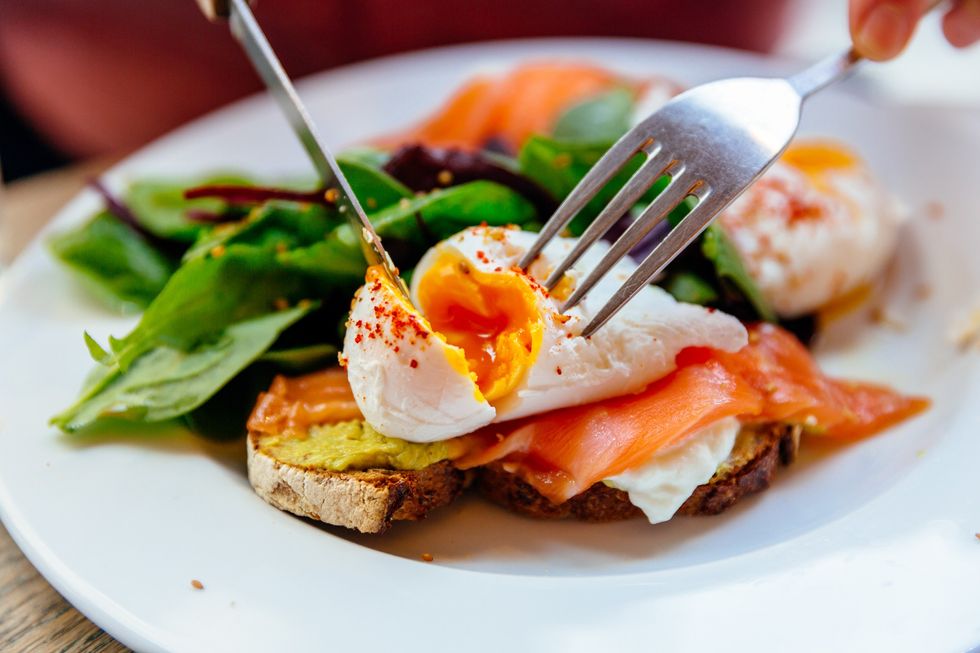The best time to eat breakfast for 'easy and effective' weight loss - 'optimise your metabolism'

Slimmers should align their meals with their natural circadian rhythm, an expert told GB News
Don't Miss
Most Read
Losing weight can be a challenge, and knowing how to approach the task is often half of the battle. With so many diet strategies and workouts out there, it's difficult to know the best methods to try.
While revamping your diet and making healthy swaps is a well-known weight loss hack, something that often goes overlooked is the timing of your meals.
GB News spoke exclusively to a triple-board-certified genetic weight loss physician about how to slim down "easily and effectively" by taking into account circadian rhythm.
Dr Phyllis Pobee, CEO of GeneLean360, encouraged slimmers to consider not just what they eat but when they eat, too.

Slimmers have been advised to eat their breakfast within 30 minutes of waking up
|GETTY IMAGES
She said: "Eating a protein-rich breakfast within 30 minutes of waking up and aligning meals with your natural circadian rhythms can optimise metabolism and energy levels throughout the day."
Consuming more protein is widely considered an essential component of an effective weight loss journey.
A fat loss expert recently told GB News: "Protein has lots of benefits, especially when it comes to weight loss because it keeps us fuller for longer."
She explained that the body uses more calories to digest protein compared to other macronutrients, as well as helping to maintain existing muscle mass during weight loss.
But when is the best time to eat a protein-packed morning meal? Experts suggest this decision may be more important than we realise.
In 'When should I eat: A circadian view on food intake and metabolic regulation', published in the National Library of Medicine, experts explained: "The circadian clock is a hierarchical timing system regulating most physiological and behavioural functions with a period of approximately 24 hours in humans and other mammalian species.
"The circadian clock drives daily eating rhythms that, in turn, reinforce the circadian clock network itself to anticipate and orchestrate metabolic responses to food intake.
"Eating is tightly interconnected with the circadian clock, and recent evidence shows that the timing of meals is crucial for the control of appetite and metabolic regulation."
The experts at UCLA Health stated that the "circadian diet is another form of intermittent fasting".
Those who practise it eat all their meals during a 12-hour window, typically between 7am and 7pm.
LATEST DEVELOPMENTS

The expert stressed the importance of eating a 'protein-rich' breakfast
| GETTY IMAGES"Meal sizes are flipped, with breakfast the largest meal of the day and dinner the smallest," the experts stated. "That 12-hour nightly fast eliminates after-dinner snacking and midnight raids on the fridge."
By definition, a circadian diet aims to curb post-meal snacking, but sometimes the kitchen cupboard can be far too tempting even still.
To ensure slimmers stick to their healthy eating habits, Dr Pobee also advised that they "detox their environment".
She instructed: "Remove temptations like ultra-processed snacks and replace them with healthier options, such as pre-cut vegetables or portioned nuts, to encourage better choices effortlessly."
In other diet news, a woman who shed almost 5st shared the weight loss method she "fell in love" with during her three-month transformation.











